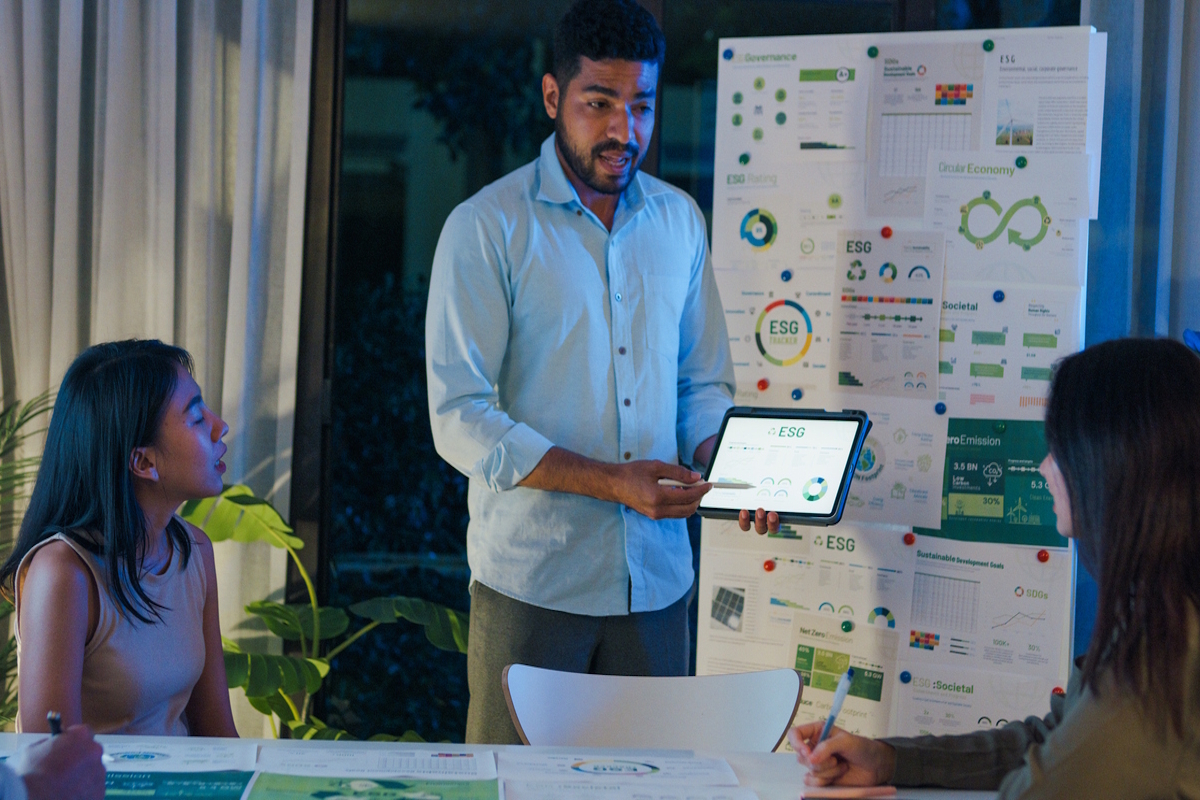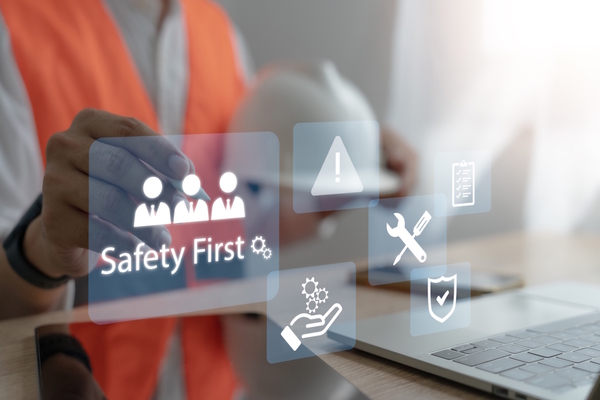From classroom to boardroom: teaching ESG for business growth

Vanezza Scanlon and Hsin-Hsuan Meg Lee at ESCP Business School London Campus argue that there is a need for rethinking the way that ESG frameworks are taught
After years of shaping business leaders through education, Vanezza Scanlon and Hsin-Hsuan Meg Lee have come to an important realisation: personal conviction isn’t enough when it comes to shaping responsible business leaders.
The business leaders of the future need to be prepared for leadership, especially in today’s world where business growth and holistic positive impact is increasingly intertwined.
The traditional focus of business to maximise profits for shareholders is no longer the only marker of success. More people are demanding that businesses act ethically, treat people fairly, and take care of the planet. Environmental, Social, and Governance (ESG) issues, once considered optional, are now part of everyday business strategy.
This shift means future business leaders must be mentored and nurtured differently. It’s not just about teaching them how to manage companies, but about shaping them into thoughtful, responsible decision-makers who understand the wider impact of their actions.
Moving from profit to purpose
For decades, business strategy has largely focused on profits, often ignoring the social and environmental costs. But things are changing. A new approach is emerging, one that encourages future leaders to think about how business affects society, nature, and future generations.
This means broadening approaches to leadership. Instead of asking, “How do we grow profits?”, the focus should be on, “How do we create value for people, for communities, and for the environment?” Success is therefore about creating long-term, shared value rather than short-term gains.
This thinking builds on the work of researchers like Michael Porter and Mark Kramer, who argue that companies can and should contribute to social progress while still being successful.
Learning to navigate complexity
It’s easy to talk about ESG, but much harder to apply it in the real world. By learning both the theory and tools for putting ESG into action as early as possible, business leaders of tomorrow can be set up for success. This starts with critical thinking: questioning assumptions, examining business models, and understanding who is affected by corporate decisions. ESG is taught not as a box to tick, but as a way of thinking, an approach to innovation, competitiveness, resilience, and long-term value.
By challenging old ideas, thinking creatively, and working collaboratively, ESG becomes part of every discussion, every project, and every decision-making process.
This also includes learning how to work with different communities, not from a “we’re here to help” mindset, but from a place of mutual respect. The aim is to treat people as partners in change, not passive recipients of aid or donations.
Learning by doing
One of the most powerful ways to teach ESG is through hands-on experience and applying lessons in the real world.
Partnerships with social enterprises, NGOs, local governments, and various companies play a key role. These partnerships offer a full view of how value is created across different sectors and how social and environmental concerns can be addressed in practice.
Working directly with impact-driven leaders to tackle real-world business dilemmas can also be an effective method of shaping future approaches to ESG. They help develop case studies based on actual situations, exploring the ethical and practical trade-offs that come with putting purpose at the heart of strategy.
There are also events like ESCP’s Social Impact Festival, where students, entrepreneurs, researchers, and local government stakeholders gather to exchange ideas and co-create solutions. It’s not just a talk-fest, it’s a launchpad for new initiatives and real partnerships.
Gen Z’s challenge of turning passion into practice
It’s easy to assume that today’s students and tomorrow’s leaders, especially Gen Z, are naturally aligned with ESG values. Many care deeply about climate change, social justice, and ethical business.
But values alone aren’t enough. When placed in high-pressure environments, even the most passionate young professionals can fall back on traditional ways of working, potentially prioritising profit and status quo over impact.
That’s why learning how to keep those values under pressure is crucial. Developing a “learning posture” teaches the ability to ask better questions, adapt to complex systems, and stay curious and open-minded, even when things don’t go as planned.
This mindset helps future leaders see beyond the surface, make sense of complexity, and act with courage and creativity. It’s about building inner strength to challenge the status quo, and keep challenging it.
A new path for business education
There are important lessons to be learnt. ESG shouldn’t be an elective or an afterthought. It needs to be embedded across all disciplines. Students must not only learn about sustainability in theory, they must experience it in action and develop a relational mindset.
Systems thinking needs to be central to see connections, patterns, and long-term consequences. Empathy should be recognised as a core business skill, not merely a soft skill. And there must be room for experimentation. Innovation doesn’t always work on the first try, but it’s through testing and failing, and non-linear contexts in which real learning happens.
Looking ahead
The world is changing fast. Businesses are under pressure to address climate change, social inequality, and ethical concerns. But they can’t do it alone; they need leaders who are ready for the challenge and equipped accordingly for the increasingly complex “jobs to be done”.
The goal isn’t just to prepare students for boardroom roles. It’s to help them reimagine what business can be: more human, more just, more sustainable. And that starts with how we teach. If we want business to be a force for good, we must equip future leaders with more than knowledge; we must give them the mindset, skills, and courage to lead differently.
Vanezza Scanlon is Affiliate Lecturer of Marketing and Social Impact, and Hsin-Hsuan Meg Lee, Associate Professor of Marketing, at ESCP Business School London Campus.
Main image courtesy of iStockPhoto.com and Tirachard

Business Reporter Team
Related Articles
Most Viewed
Winston House, 3rd Floor, Units 306-309, 2-4 Dollis Park, London, N3 1HF
23-29 Hendon Lane, London, N3 1RT
020 8349 4363
© 2025, Lyonsdown Limited. Business Reporter® is a registered trademark of Lyonsdown Ltd. VAT registration number: 830519543





